Table of Contents
- Understanding the Causes of Bad Breath in Cats
- The Importance of Maintaining Your Cat’s Dental Health
- Home Remedies for Cat Bad Breath: Natural Solutions to Try
- The Role of Diet in Preventing and Treating Bad Breath in Cats
- How to Brush Your Cat’s Teeth: Tips and Techniques
- Professional Dental Care for Cats: When to Seek Veterinary Help
- Addressing Underlying Health Issues that Contribute to Bad Breath in Cats
- Tips for Maintaining Your Cat’s Fresh Breath and Oral Health
- The Benefits of Regular Dental Checkups for Your Cat
- Conclusion: Keeping Your Feline’s Breath Fresh and Healthy
Understanding the Causes of Bad Breath in Cats
Cats are susceptible to developing bad breath, which can be a sign of underlying health issues. While it’s common for cats to have mild halitosis, persistent bad breath can indicate a dental problem, digestive issue, or systemic disease. In this section, we’ll explore the common causes of bad breath in cats and how to identify them.
Dental Problems
One of the most common causes of bad breath in cats is poor dental hygiene. Just like humans, cats need regular dental care to keep their teeth and gums healthy. If your cat’s teeth are not properly cleaned, bacteria can build up, causing plaque, tartar, and gum disease. As a result, your cat may develop bad breath, tooth decay, and even tooth loss. To combat these dental issues, several Cat bad breath remedies can be employed, including natural solutions like coconut oil, apple cider vinegar, and probiotics.
Digestive Issues
If your cat is experiencing digestive problems, it can also lead to bad breath. Digestive issues such as constipation, stomach upset, and gastrointestinal diseases can cause bad breath due to the build-up of gases in the digestive tract. Furthermore, a diet that is high in carbohydrates and low in protein can contribute to bad breath in cats. Therefore, providing your cat with a well-balanced, high-protein diet can help reduce the likelihood of digestive issues and bad breath.
Systemic Diseases
In some cases, bad breath in cats can be an indicator of a systemic disease. Kidney disease, liver disease, and diabetes are just a few examples of conditions that can cause bad breath in cats. These systemic diseases can affect a cat’s metabolism and cause waste products to build up in the bloodstream, leading to bad breath. If your cat’s bad breath is accompanied by other symptoms such as lethargy, loss of appetite, or vomiting, it’s essential to consult with your veterinarian as soon as possible.
In conclusion, bad breath in cats is not something that should be ignored. Understanding the underlying causes of bad breath is crucial to ensure that your cat is healthy and happy. By practicing good dental hygiene, feeding your cat a well-balanced diet, and seeking veterinary care when necessary, you can help your cat maintain fresh breath and optimal oral health.

The Importance of Maintaining Your Cat’s Dental Health
Maintaining your cat’s dental health is crucial for their overall well-being. Good dental hygiene can prevent dental issues such as gum disease, tooth decay, and bad breath. In this section, we’ll explore the reasons why maintaining your cat’s dental health is essential and some cat bad breath remedies that can be employed.
Preventing Dental Issues
Maintaining good dental hygiene is one of the most effective ways to prevent dental issues in cats. Regular brushing and dental checkups can help identify and address dental issues before they become more severe. Dental problems can lead to a host of health issues in cats, including difficulty eating, pain, and infections. By practicing good dental hygiene, you can help prevent these issues and ensure that your cat’s teeth and gums remain healthy.
Reducing the Risk of Systemic Disease
Dental problems can also lead to systemic disease in cats. The bacteria that cause dental issues can enter the bloodstream and affect other organs in the body. This can lead to conditions such as kidney disease, heart disease, and respiratory problems. By maintaining your cat’s dental health, you can reduce the risk of these systemic diseases and help your cat maintain optimal overall health.
Maintaining Fresh Breath
One of the most obvious benefits of good dental hygiene in cats is fresh breath. Bad breath in cats can be unpleasant for both the cat and their owners. Regular brushing, dental cleanings, and natural remedies can help keep your cat’s breath fresh and reduce the likelihood of bad breath.
In conclusion, maintaining your cat’s dental health is essential for their overall well-being. By preventing dental issues, reducing the risk of systemic disease, and maintaining fresh breath, you can help your cat live a long, healthy life. Incorporating cat bad breath remedies and regular dental care into your cat’s routine can help ensure that their teeth and gums remain healthy and their breath remains fresh.
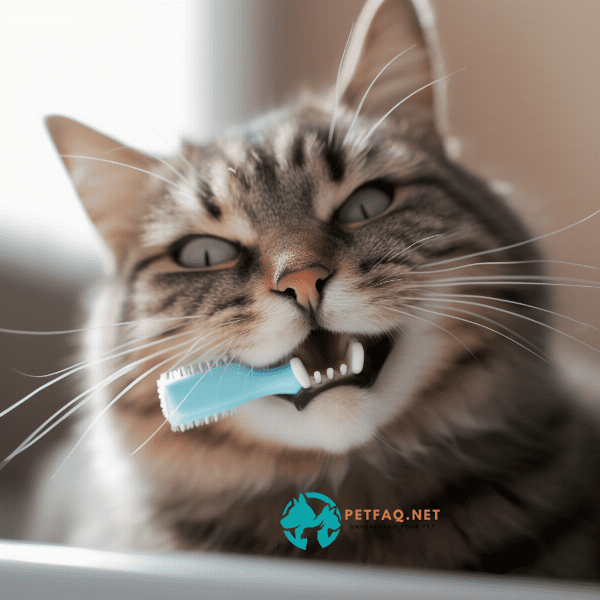
Home Remedies for Cat Bad Breath: Natural Solutions to Try
If your cat has bad breath, there are several cat bad breath remedies that you can try at home. Natural solutions can be a great way to freshen your cat’s breath and improve their overall oral health. In this section, we’ll explore some natural remedies for bad breath in cats.
Coconut Oil
Coconut oil is a natural remedy that has been shown to improve dental health in cats. Coconut oil contains lauric acid, which has antibacterial properties that can help fight the bacteria that cause bad breath. You can add a small amount of coconut oil to your cat’s food or apply it directly to their teeth and gums to help improve their dental health and freshen their breath.
Apple Cider Vinegar
Apple cider vinegar is another natural remedy that can help freshen your cat’s breath. Apple cider vinegar has acidic properties that can help break down plaque and tartar buildup on your cat’s teeth. You can add a small amount of apple cider vinegar to your cat’s water bowl or mix it into their food to help improve their dental health and freshen their breath.
Probiotics
Probiotics are beneficial bacteria that can help improve your cat’s digestive health and reduce bad breath. Probiotics work by promoting the growth of beneficial bacteria in the digestive tract, which can help prevent the buildup of gases that cause bad breath. You can add probiotics to your cat’s diet through supplements or by feeding them foods that contain probiotics, such as yogurt or kefir.
In conclusion, natural remedies can be a great way to improve your cat’s dental health and freshen their breath. Incorporating cat bad breath remedies such as coconut oil, apple cider vinegar, and probiotics into your cat’s routine can help maintain their oral health and keep their breath fresh. However, it’s important to remember that natural remedies should not replace regular dental care and veterinary checkups. If your cat’s bad breath persists or is accompanied by other symptoms, it’s essential to consult with your veterinarian.

The Role of Diet in Preventing and Treating Bad Breath in Cats
Your cat’s diet plays a significant role in their oral health and can be a contributing factor to bad breath. Feeding your cat a well-balanced, high-protein diet can help prevent dental issues and reduce bad breath. In this section, we’ll explore the role of diet in preventing and treating bad breath in cats.
The Link Between Diet and Dental Health
The food your cat eats can affect their dental health in several ways. A diet that is high in carbohydrates and low in protein can contribute to bad breath and dental issues. Carbohydrates can stick to your cat’s teeth and gums, providing a breeding ground for bacteria that cause bad breath. On the other hand, a diet that is high in protein can help maintain your cat’s dental health by promoting the growth of beneficial bacteria in their mouth.
Feeding Your Cat a High-Protein Diet
Feeding your cat a high-protein diet is essential for maintaining their dental health and fresh breath. High-quality protein sources such as chicken, fish, and turkey can help promote dental health by providing the necessary nutrients for healthy teeth and gums. Additionally, high-protein diets can help reduce the buildup of plaque and tartar on your cat’s teeth, which can contribute to bad breath.
Choosing the Right Cat Food
When choosing cat food, it’s essential to look for high-quality, protein-rich options that are formulated for your cat’s age and health needs. Avoid feeding your cat table scraps and human food, which can be high in carbohydrates and contribute to bad breath. Additionally, providing your cat with fresh, clean water can help wash away food particles and bacteria that contribute to bad breath.
In conclusion, the role of diet in preventing and treating bad breath in cats should not be overlooked. Feeding your cat a well-balanced, high-protein diet and choosing the right cat food can help promote dental health and reduce bad breath. Incorporating cat bad breath remedies such as probiotics and natural solutions into your cat’s diet can also help maintain their oral health and freshen their breath. If you have any concerns about your cat’s dental health or bad breath, it’s important to consult with your veterinarian.
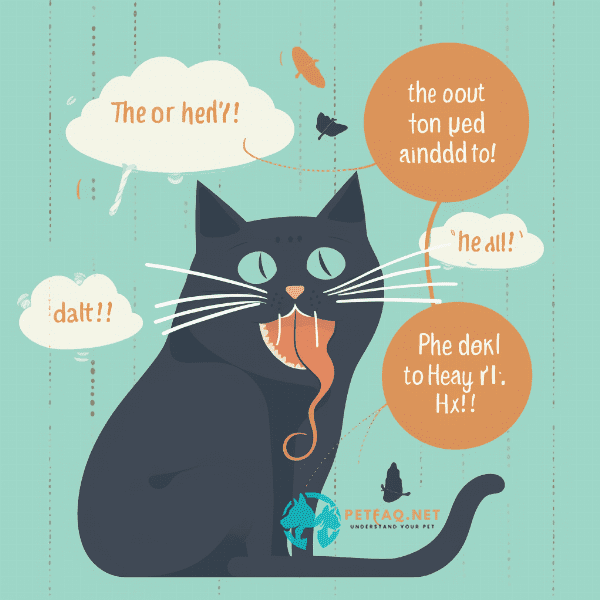
How to Brush Your Cat’s Teeth: Tips and Techniques
Brushing your cat’s teeth is an essential part of maintaining their dental health and reducing bad breath. While it can be challenging to get your cat to cooperate, with the right approach and techniques, brushing your cat’s teeth can become a part of their routine. In this section, we’ll explore some tips and techniques for brushing your cat’s teeth and incorporating cat bad breath remedies.
Getting Started
Before you start brushing your cat’s teeth, it’s essential to get them used to the idea. Start by getting your cat used to having their mouth touched by gently rubbing their gums with your finger. Once your cat is comfortable with this, introduce a cat-specific toothbrush and toothpaste. Do not use human toothpaste, as it can be toxic to cats.
The Brushing Technique
When brushing your cat’s teeth, it’s essential to use a gentle, circular motion to clean their teeth and gums. Start by brushing the outside surfaces of their teeth, moving from the back of their mouth to the front. Be sure to pay extra attention to the back teeth, as this is where most dental issues occur. As you brush, offer your cat positive reinforcement, such as treats or praise, to make the experience more enjoyable.
Natural Solutions
In addition to brushing, natural solutions can be incorporated into your cat’s routine to maintain their oral health and reduce bad breath. Coconut oil, apple cider vinegar, and probiotics are all natural remedies that can be added to your cat’s diet to promote dental health and freshen their breath.
In conclusion, brushing your cat’s teeth is an essential part of maintaining their dental health and reducing bad breath. By getting your cat used to the idea, using a gentle brushing technique, and incorporating cat bad breath remedies such as natural solutions, you can help maintain your cat’s oral health and keep their breath fresh. If you’re having trouble brushing your cat’s teeth or have concerns about their dental health, it’s important to consult with your veterinarian.
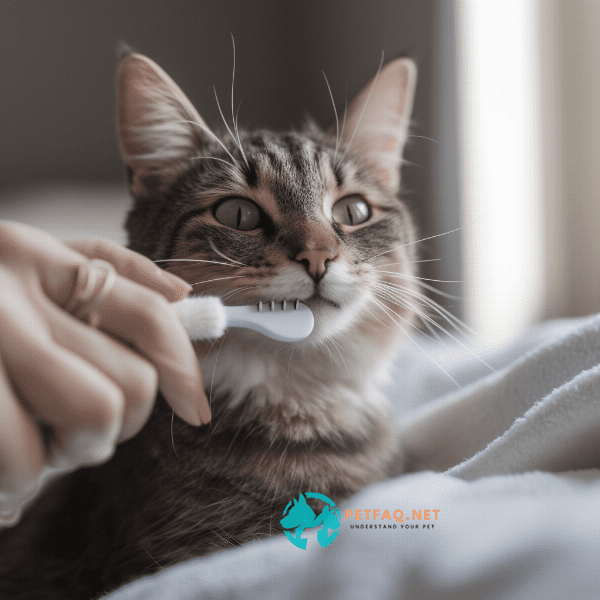
Professional Dental Care for Cats: When to Seek Veterinary Help
While home remedies and regular brushing can help maintain your cat’s dental health, sometimes professional dental care is necessary. If your cat has persistent bad breath, difficulty eating, or other symptoms of dental issues, it’s important to seek veterinary help. In this section, we’ll explore the signs that indicate your cat needs professional dental care and some cat bad breath remedies that your veterinarian may recommend.
Signs Your Cat Needs Professional Dental Care
There are several signs that indicate your cat needs professional dental care. These include persistent bad breath, difficulty eating, drooling, bleeding gums, and loose or missing teeth. If you notice any of these symptoms, it’s essential to seek veterinary help as soon as possible. Your veterinarian can perform a dental exam and determine the best course of treatment for your cat’s dental issues.
Professional Dental Procedures
If your cat needs professional dental care, your veterinarian may recommend procedures such as dental cleanings, extractions, or root canals. These procedures are performed under anesthesia and are essential for addressing dental issues such as gum disease, tooth decay, and oral infections. Your veterinarian will work with you to develop a treatment plan that is tailored to your cat’s specific needs.
Maintaining Dental Health After Professional Care
After your cat receives professional dental care, it’s essential to continue maintaining their dental health at home. Your veterinarian may recommend cat bad breath remedies such as dental chews, mouthwash, or specific dental diets to help maintain your cat’s oral health. Additionally, regular brushing and dental checkups can help prevent future dental issues and keep your cat’s breath fresh.
In conclusion, if your cat has persistent bad breath or other symptoms of dental issues, it’s important to seek veterinary help. Professional dental care can help address dental issues and prevent future health problems. By maintaining your cat’s dental health at home and incorporating cat bad breath remedies recommended by your veterinarian, you can help ensure that your cat’s teeth and gums remain healthy and their breath stays fresh.
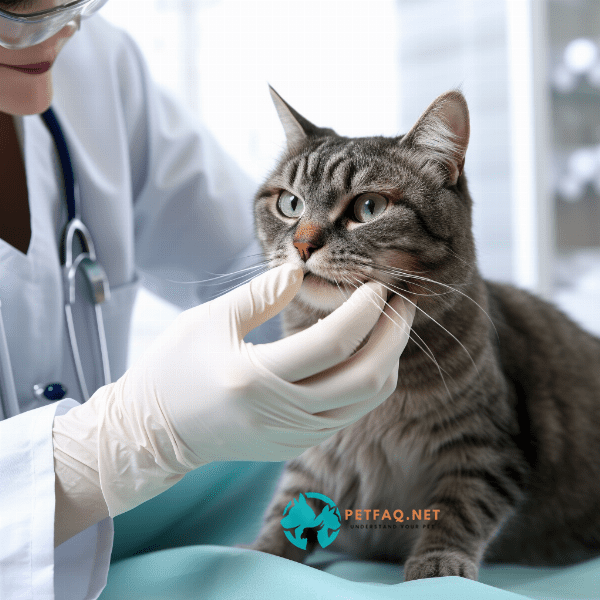
Addressing Underlying Health Issues that Contribute to Bad Breath in Cats
While dental issues are the most common cause of bad breath in cats, there are other underlying health issues that can contribute to bad breath as well. If your cat has persistent bad breath, it’s essential to seek veterinary help to rule out any underlying health issues. In this section, we’ll explore some underlying health issues that can contribute to bad breath in cats and some cat bad breath remedies that can help address them.
Kidney Disease
Kidney disease is a common health issue in cats that can lead to bad breath. The buildup of toxins in the blood that occurs with kidney disease can lead to a foul odor in your cat’s breath. If your cat has persistent bad breath and other symptoms such as weight loss, increased thirst, and frequent urination, it’s essential to seek veterinary help. Your veterinarian can perform tests to diagnose kidney disease and develop a treatment plan to manage your cat’s symptoms.
Gastrointestinal Issues
Gastrointestinal issues such as inflammatory bowel disease, pancreatitis, and gastrointestinal cancer can also contribute to bad breath in cats. These conditions can cause a foul odor in your cat’s breath due to the buildup of gases in the digestive tract. If your cat has persistent bad breath and other symptoms such as vomiting, diarrhea, or weight loss, it’s essential to seek veterinary help. Your veterinarian can perform tests to diagnose these conditions and develop a treatment plan to manage your cat’s symptoms.
In conclusion, bad breath in cats can be caused by a variety of underlying health issues. If your cat has persistent bad breath, it’s essential to seek veterinary help to rule out any underlying health issues. Addressing underlying health issues with appropriate treatment plans and incorporating cat bad breath remedies can help improve your cat’s breath and overall health.
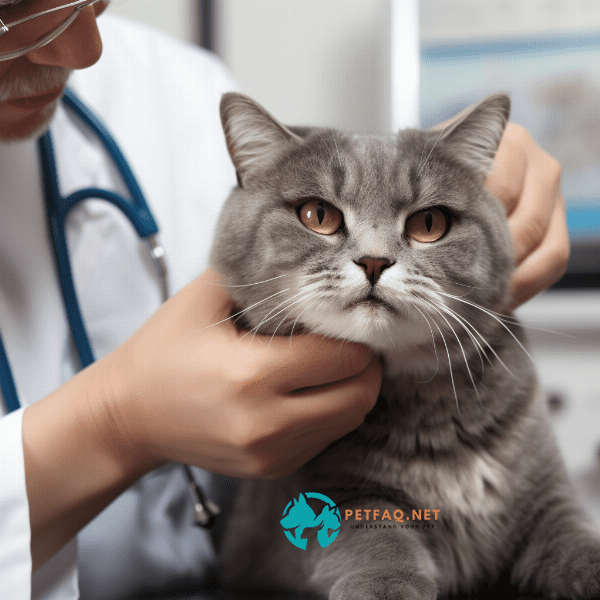
Tips for Maintaining Your Cat’s Fresh Breath and Oral Health
Maintaining your cat’s fresh breath and oral health is essential for their overall health and well-being. By incorporating a few simple cat bad breath remedies and following some basic oral hygiene practices, you can help ensure that your cat’s teeth and gums remain healthy and their breath stays fresh. In this section, we’ll explore some tips for maintaining your cat’s fresh breath and oral health.
Regular Dental Checkups
Regular dental checkups are essential for maintaining your cat’s oral health. Your veterinarian can perform a dental exam, clean your cat’s teeth, and address any dental issues that may be contributing to bad breath. Your veterinarian can also provide recommendations for cat bad breath remedies and offer advice on how to maintain your cat’s oral health at home.
Brushing Your Cat’s Teeth
Brushing your cat’s teeth is an essential part of maintaining their oral health and reducing bad breath. By brushing your cat’s teeth regularly with a cat-specific toothbrush and toothpaste, you can remove plaque and tartar buildup and promote healthy teeth and gums. While it may take some time to get your cat used to the idea of brushing, with patience and practice, it can become a routine part of their care.
Providing Healthy, High-Quality Food and Water
In conclusion, maintaining your cat’s fresh breath and oral health is essential for their overall health and well-being. By incorporating cat bad breath remedies such as regular dental checkups, brushing your cat’s teeth, and providing healthy, high-quality food and water, you can help ensure that your cat’s teeth and gums remain healthy and their breath stays fresh. If you have any concerns about your cat’s dental health or bad breath, it’s important to consult with your veterinarian.

The Benefits of Regular Dental Checkups for Your Cat
Regular dental checkups are essential for maintaining your cat’s oral health and reducing bad breath. By taking your cat to the veterinarian for regular dental checkups, you can prevent dental issues from developing or catch them early on when they are easier to treat. In this section, we’ll explore some of the benefits of regular dental checkups for your cat and how they can help maintain your cat’s oral health and fresh breath.
Early Detection and Treatment of Dental Issues
One of the most significant benefits of regular dental checkups is the early detection and treatment of dental issues. By catching dental issues such as gum disease or tooth decay early on, your veterinarian can prevent them from worsening and causing more serious health problems. Additionally, by addressing dental issues early, you can prevent them from causing bad breath and other symptoms that can impact your cat’s quality of life.
Professional Cleaning
During a dental checkup, your veterinarian can perform a professional cleaning of your cat’s teeth and gums. Professional cleanings can remove plaque and tartar buildup and help prevent dental issues from developing. Additionally, professional cleanings can help freshen your cat’s breath and improve their overall oral health.
Recommendations for Cat Bad Breath Remedies
During a dental checkup, your veterinarian can provide recommendations for cat bad breath remedies such as dental chews, mouthwash, or specific dental diets to help maintain your cat’s oral health and freshen their breath. Your veterinarian can also offer advice on how to brush your cat’s teeth and provide tips on how to maintain their oral health at home.
In conclusion, regular dental checkups are essential for maintaining your cat’s oral health and reducing bad breath. By detecting and treating dental issues early, providing professional cleaning, and receiving recommendations for cat bad breath remedies, you can help ensure that your cat’s teeth and gums remain healthy and their breath stays fresh. If you have any concerns about your cat’s dental health or bad breath, it’s important to consult with your veterinarian.
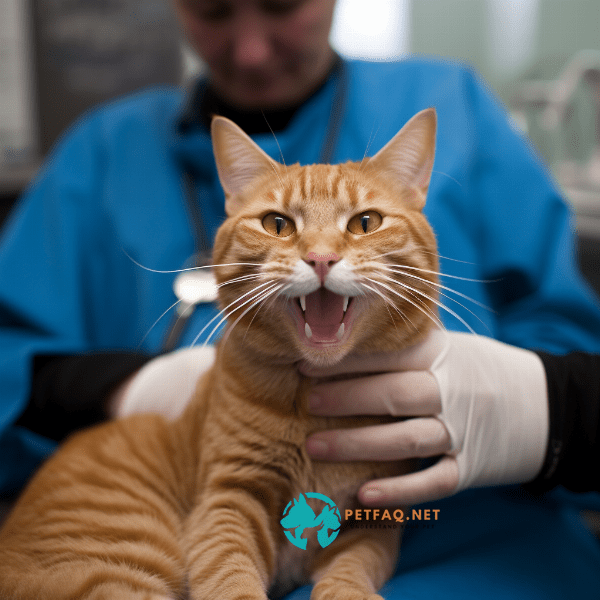
Conclusion: Keeping Your Feline’s Breath Fresh and Healthy
Understanding the Causes of Bad Breath in Cats
We’ve discussed how dental issues are the most common cause of bad breath in cats, but other underlying health issues such as kidney disease, diabetes, and gastrointestinal issues can also contribute to bad breath. It’s essential to seek veterinary help to rule out any underlying health issues that may be contributing to bad breath.
Maintaining Your Cat’s Dental Health
We’ve explored some basic oral hygiene practices such as regular dental checkups, brushing your cat’s teeth, and providing healthy, high-quality food and water that can help maintain your cat’s dental health and fresh breath. Additionally, we’ve discussed the importance of seeking professional dental care when necessary and maintaining your cat’s dental health after professional care.
Tips for Keeping Your Feline’s Breath Fresh and Healthy
We’ve provided some tips for maintaining your cat’s fresh breath and oral health, including recommendations for cat bad breath remedies and advice on how to brush your cat’s teeth. We’ve also discussed the benefits of regular dental checkups and how they can help prevent dental issues from developing or catch them early on when they are easier to treat.
In conclusion, by following the tips and techniques outlined in this article and seeking veterinary help when necessary, you can help maintain your cat’s fresh breath and oral health. By incorporating cat bad breath remedies and practicing good oral hygiene, you can ensure that your cat’s teeth and gums remain healthy and their breath stays fresh.

Frequently Asked Questions (FAQs) about Cat bad breath remedies:
1. How often should I brush my cat's teeth to prevent bad breath?2. Are there any prescription medications that can help with bad breath in cats?
3. When should I take my cat to the vet for bad breath?
4. Can bad breath in cats be a sign of a more serious health issue?
5. When should I take my cat to the vet for bad breath, and what can I expect during the examination?



